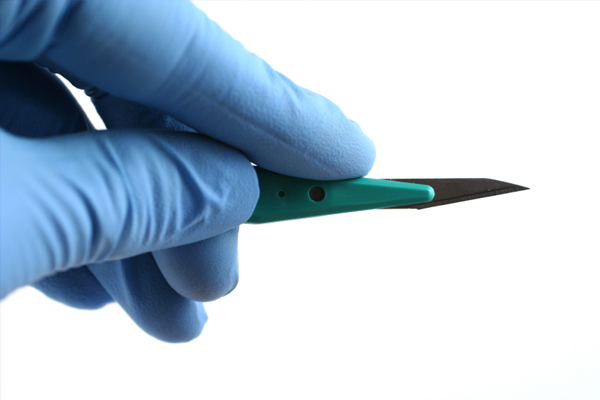Where are the foreskins of yesteryear? Circumcision was once a routine procedure for infant boys in America, but in recent years it’s fallen out of favor. A CDC report last month noted that “in-hospital circumcisions dropped from 62.5% in 1999 to 56.9% in 2008.” Eighteen states have dropped Medicare funding for the procedure, and earlier this year, lobbyists in San Francisco attempted a ballot initiative to ban circumcisions outright.
But now the pro-circumcision side is coming back swinging. In an editorial in the October 5 issue of the Journal of the American Medical Association, doctors Aaron A. R. Tobain and Ronald H. Gray enthusiastically endorse “The Medical Benefits of Male Circumcision.” In it, they state that “three randomized trials in Africa demonstrated that adult male circumcision decreases human immunodeficiency virus acquisition in men by 50 percent to 60 percent” and that “male circumcision has been shown to reduce the risk of other heterosexually acquired sexually transmitted infections,” including herpes and HPV. Further, the authors argue that infant circumcision can prevent “infant urinary tract infections, meatitis, balanitis, and phimosis.” And the authors cleverly compare circumcision to vaccination, arguing that it’s “in the best interests of children” and positing that “If a vaccine were available that reduced HIV risk by 60 percent, genital herpes risk by 30 percent, and HR-HPV risk by 35 percent… it would be promoted as a game-changing public health intervention.”
But is it? As a commenter at the L.A. Times noted Wednesday, “Europe and Japan have low circumcision rates and low HIV rates,” and a 2004 Naval Health Research Center concluded, “Although there may be other medical or cultural reasons for male circumcision, it is not associated with HIV or STI prevention in this U. S. military population.” For its part, the American Academy of Pediatrics currently takes a fairly neutral view of the procedure, stating, “Existing scientific evidence demonstrates potential medical benefits of newborn male circumcision; however, these data are not sufficient to recommend routine neonatal circumcision.” It is however currently revamping its stance, with an updated declaration expected in early 2012.
As a lady with two daughters and no religious imperative toward circumcision, I’ll admit that I’ve got no wiener dog in this particular hunt. Though it was clear during both of my pregnancies that my own gut instinct was to avoid circumcision, I’ve never had to make that choice for a son. I know plenty of parents who have, however, and the range of emotions and arguments on both sides of the table runs the gamut. What is abundantly clear though is that the days of simply handing male children over for a little bit off the tip as casually as one would submit them to get their bilirubin levels checked are over. When the stakes are nothing short of the most intimate aspect of the male anatomy, there are passionate cases to be made on both sides. In the end, we all want to do right by our children. But when a boy’s body is on the line, what’s best for him isn’t always clear-cut.


